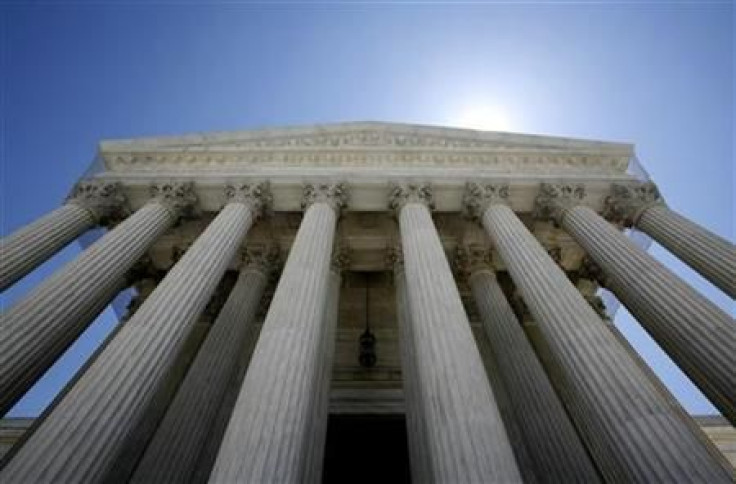Most Say Politics Will Influence Supreme Court's Health Care Ruling: Poll

As the U.S Supreme Court begins three days of argument on President Barack Obama's health care overhaul law, Americans of all political affiliations are interested in the outcome of what pundits and legal experts expect will be a landmark decision.
Two new polls from the Hill and the New York Times/CBS News found more Americans continue to disapprove of the 2010 law than support it, with respondents split mostly along partisan lines.
But while probable voters' political views influence their opinion, more than half of the 1,000 respondents surveyed by the Hill -- a newspaper that covers Congress -- implied they don't necessarily trust the Supreme Court justices' motivations. A total of 56 percent said they believe the justices will be swayed by their political beliefs when deliberating the challenge to the law, compared with just 27 percent who said the justices will make impartial decisions based on their reading of the Constitution.
That sentiment stretched across most polling demographics, with a majority of whites (54 percent), blacks (59 percent), Republicans (56 percent), Democrats (59 percent), conservatives (54 percent), centrists (56 percent) and liberals (59 percent) expressing skepticism about the influence politics will have on the court's decision.
Half of likely voters told the Hill that the high court should strike down the law, the full name of which is the Patient Protection and Affordable Care Act, while 42 percent said it should be upheld. Those responses were in line with a separate poll conducted by the New York Times/CBS News last week that concluded 47 percent of Americans are opposed to the law, while only 36 percent approved of Obama's signature domestic achievement.
Most surveys have shown a high margin of disapproval for the law since its enactment two years ago, a frustration for many Democrats who had hoped to sway public opinion in favor of a health care overhaul before the case was ultimately thrust before the Supreme Court.
Republicans United Against Health Care Law
Republicans have united against the law on Capitol Hill and on the campaign trail, with the presidential and congressional elections looming in November. White House hopeful Rick Santorum has gone so far as to claim that repealing the health care law is the singular issue that propelled him into the race for the Republican nomination.
Santorum was to make an appearance at the Supreme Court on Monday afternoon, presumably to denounce the law on constitutional grounds.
The sustained political attack has helped keep public arroval of the law at low levels, while serving as a political headache for the Obama administration. However, this hasn't translated into improved public opinion of Republicans. Their party and Democrats were tied at 44 percent when voters were asked which party they trust more on the issue of health care, according to the Hill.
The challenge against the health care law -- brought to the court by the attorneys general of 26 states as well as the National Federation of Independent Business -- mainly targets the constitutionality of its individual mandate, a requirement that almost every American adult buy health insurance or risk paying a fine. While its legality has been upheld by two of four federal appeals courts, the mandate is expected to face a fierce challenge in the Supreme Court, which has five conservative and four liberal justices.
The case, because of its extensive implications for the role of government, is already expected to hold a place in history alongside some of the court's most famous decisions -- and the American public is aware of this.
Washington was flooded with media and spectators the weekend before Monday's opening arguments. The Washington Post reported that some people even hired professional line-standers to hold their spots outside the Supreme Court building in anticipation of the oral arguments.
Americans might even be willing to neglect one of their favorite pastimes -- college sports -- in order to keep up with the court arguments: A total of 76 percent of respondents told the Hill that they would be paying more attention to the court case than the NCAA basketball tournament this week.
© Copyright IBTimes 2024. All rights reserved.











